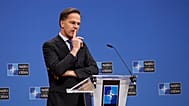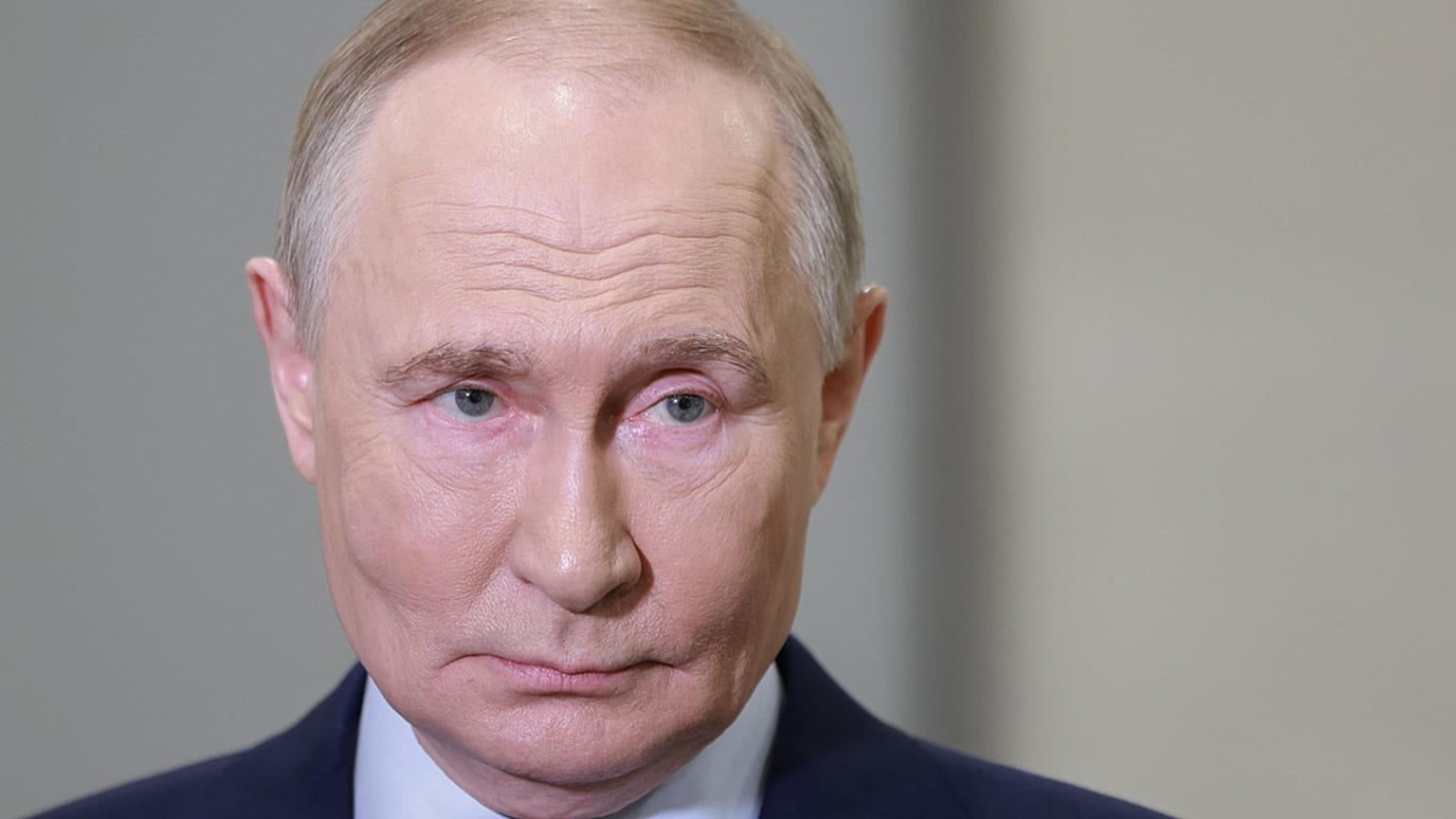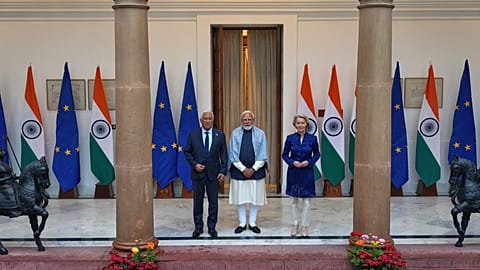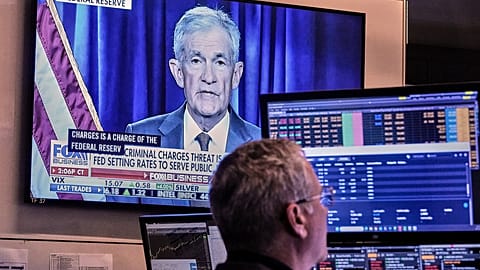The Russian economy is balancing on the edge of recession, yet the war could go on for years. Its financing appears to have no immediate major obstacles, according to experts.
Russia is facing a new wave of US and EU sanctions while its internal economy is nearing recession, but all this is not enough to curb its capacity to fund the war in Ukraine, according to experts.
“Recession means almost nothing for Russia’s economic and political stability these days,” said Vladislav Inozemtsev, co-founder and Advisory Council Member of the Center for Analysis and Strategies in Europe (CASE), an independent think-tank based in the European Union.
A look inside the Russian economy
Despite being boosted by military spending, the Russian economy is showing signs of sliding towards recession or stagflation.
Inflation remains high and it's coupled with a sharp economic slowdown. Inflation peaked at 10.3% in March and eased to 8% in September, still double the Bank of Russia’s 4% target.
Despite this, the central bank has aggressively cut its benchmark rate, most recently on 24 October, lowering it by 50 basis points to 16.5% — the fourth consecutive cut and a surprise to markets expecting a pause.
High interest rates and acute labour shortages (with the unemployment rate sitting at 2.1%) have constrained growth. The economy expanded by 1.4% year-on-year in the first quarter of 2025, and 1.1% in the second quarter, down from 4.1% annual growth in both 2023 and 2024.
Business sentiment has also been weakening. The S&P Global Russia Composite PMI fell to 46.6 in September from 49.1 in August, marking the fourth straight month of private sector contraction and the lowest reading since October 2022, with both manufacturing and services affected.
According to Oxford Economics, the Russian economy has not been in recession (defined as two consecutive quarters of contraction). But economists at the global economic advisory firm told Euronews Business that they expect growth in the third quarter to be as weak as 0.2% quarter-on-quarter.
“We expect similar growth rates in the near term, but it is possible that the recent oil sanctions tip the economy into a recession,” analysts added.
CASE's Vladislav Inozemtsev told Euronews: “The business sentiment is, broadly speaking, bleak...Entrepreneurs anticipate worsening overall conditions, economic standstill, declining consumer demand, and rising taxes.”
The economist expects a moderate recession to hit Russia’s economy in the coming months, concluding in flat annual growth for 2025 and “a contraction of between 1% and 1.4% in 2026”.
The Russian economy has adapted to the war and remains in a state of balance, according to a recent report by the Center for Analysis and Strategies in Europe (CASE). The report forecasts a prolonged period of political and economic stagnation in Russia, without much development or prosperity over the next ten years.
Do sanctions work?
In October 2025, both the European Union and the United States imposed sanctions against Moscow, adding to a long list of restrictions that have been gradually put in place since Russia invaded Ukraine in 2022.
The US directly sanctioned Russia’s two largest oil companies, Rosneft and Lukoil, and their subsidiaries.
EU countries adopted the 19th sanctions package, including a total ban on Russian liquefied natural gas (LNG) starting in 2027, and a ban on Rosneft’s and Gazprom Neft’s oil and gas imports into the EU.
The bloc has also adopted new sanctions to stop Russia from circumventing previous restrictions, preventing investment in the country and stopping it from receiving certain financial services and infrastructure. That's coupled with a ban on trade in critical war-supporting materials.
These measures “substantially increase the pressure on the Russian war economy,” according to the EU.
In the Kremlin's eyes, the new stricter measures will have no impact on Russia’s economy and its war strategy in Ukraine.
Analysts say Russia is a particularly difficult target given its export of many crucial commodities, including oil and gas, fertilisers, wheat, and precious metals. And Russia has found ways around sanctions and restrictions, including trade via a “shadow fleet” of oil tankers and boosting exports to China and India.
Meanwhile, experts question whether sanctions will stop Russian war efforts, even if they push the country’s economy into recession.
Sanctions undoubtedly have an impact on Russia’s energy revenues. But energy products, though "important for the domestic market and on the margin for exports, are not a substantial source of revenues for the budget to continue the war,” said Elina Ribakova, non-resident fellow at Brussels-based think tank Bruegel.
CASE figures confirm that the federal budget’s reliance on oil and gas has fallen sharply. The share of them in total revenues dropped from over 50% in 2011–2014 to just 25% by mid-2025.
The decline reflects a fall in oil prices and Russia’s oil production, along with the rapid strengthening of the rouble and the impact of Western sanctions.
Ukrainian drone attacks on Russian oil refineries are not having a major impact on export volumes, said Inozemtsev, adding that: “Russia sells both crude and processed oil. If a refinery is blown up, the share of the crude simply goes up as it is taken to the ports without being processed.”
Russia's income from its hydrocarbon production is still decreasing due to declining prices. Analysts at Oxford Economics added that in September, the budget received RUB 582.5bn (equivalent to €6.3bn) in hydrocarbon revenues, 25% less than in the same month of 2024.
“These sanctions don’t matter much,” said Inozemtsev. “Putin doesn’t pay for his war with the dollars or yuan he gets from exports. He pays workers and soldiers roubles that his Central Bank can print or that his tax service collects from Russian businesses, up 13.2% year-on-year in October,” said the economist.
In the long term, reduced purchases by India and China threaten to cut key revenue, but even if the exports of Russian oil to both India and China decrease by one-third, “the military will not feel it for at least one year (and most probably for a longer term),” said the economist.
Experts at Oxford Economics agreed, adding: “The war could go on for years. Russia still has money in its sovereign fund (5.9% of GDP in total in September, including 1.9% of GDP in liquid assets).”
A key source of income to finance the budget deficit, expected at 2.6% of GDP, is government borrowing on the domestic market. Russia’s national debt to its GDP is expected to be at 17.7% by the year-end 2025, according to CASE's report, adding to the stable fiscal outlook of the country.
“The government will be able to fund the war for as long as the deficit is manageable and can be covered partly from the sovereign fund and partly by borrowing in the domestic bond market,” according to Oxford Economics.
Inozemtsev added that private deposits in Russian banks are sufficient, “now five times the entire military budget for 2025”.
“So I would suggest that one should not fool himself or herself, hoping that the decrease in Russian exports will soon undermine Putin’s ability to wage war. We may return to this issue sometime in late 2027, but not earlier,” concluded Inozemtsev.
And whether exports will really fall remains to be seen. “Most likely, Russia will continue to export oil, but with a bigger discount and via more intermediaries to obscure the source of oil,” said Ribakova. “In the case of China, it is nearly impossible to monitor the transactions between Russia and China.”


















